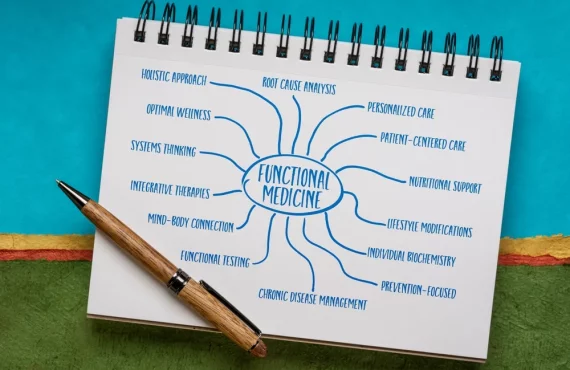Functional Medicine: Understanding Osteoarthritis
Stats show that Osteoarthritis (OA) is the most common form of arthritis worldwide. In the United States alone, over 32 million people have OA! Functional medicine is a fresh perspective to meet the challenge of health conditions like osteoarthritis head-on.
Picture this: you’re dealing with osteoarthritis, and it’s not fun. But fear not! Functional medicine steps in with a game-changing approach. It’s not just about treating the symptoms; it’s about tackling osteoarthritis from all angles to help you feel your best. We’re not just scratching the surface here; we’re delving into how osteoarthritis makes you feel, how it affects your day-to-day life, and most importantly, how functional medicine swoops in to save the day.
Research found more than 22 percent of American adults (over 52.5 million people) have arthritis or another rheumatic condition diagnosed by a doctor!
So buckle up and get ready to discover how functional medicine can be your superhero in the fight against osteoarthritis!
1. How Does Osteoarthritis Make You Feel?
Osteoarthritis can make you feel achy and stiff, especially in your joints. It might hurt when you move or do activities like walking or playing sports. Some people with osteoarthritis feel like their joints are swollen or stiff, making it hard to bend or use them like they used to.
2. Is Osteoarthritis a Big Deal?
Osteoarthritis might seem like a big deal because it can cause pain and discomfort. However, it’s a common condition, especially as people get older. While it can impact daily life, there are ways to manage it and improve symptoms.
How can functional medicine help?
“Functional medicine offers a transformative approach to managing conditions such as osteoarthritis by delving deep into the interconnected web of factors influencing health. By understanding the unique genetic, environmental, and lifestyle factors at play, we can tailor interventions to address the root causes of osteoarthritis, rather than merely treating its symptoms. Through personalized and holistic strategies, including optimizing nutrition, lifestyle modifications, and targeted treatments, we empower individuals to reclaim control over their health journey. It’s about fostering a partnership between patient and practitioner, working together to optimize well-being and enhance quality of life. With functional medicine, there’s hope and empowerment for those navigating the challenges of osteoarthritis, paving the way for a brighter and healthier future.” – Dr. Anju Mather
3. What Is the Life Expectancy of a Person with Osteoarthritis?
Having osteoarthritis doesn’t usually affect your life expectancy. It’s more about managing symptoms and staying healthy overall. With proper care and treatment, many people with osteoarthritis can live long and fulfilling lives.
4. What Is the Best Painkiller for Osteoarthritis?
There isn’t one best painkiller for osteoarthritis because it depends on each person’s needs. Some people find relief with over-the-counter medications like acetaminophen or ibuprofen. Others might need prescription medications or other treatments like physical therapy or injections.
A patient had autoimmune issues rheumatoid arthritis and also diabetes type 2 diabetes. She says “The symptoms I was having of course was joint pain lots of inflammation my eyes were really inflamed and I could barely see at times I’ve been to the conventional medicine stuff and I did a lot of research on it and I didn’t want to ever have to put that in my system. So I needed to find a treatment plan that was holistic or healthy well Dr. Mather has recommended a great program doing the UVI and the vitamin C drips as well as nutritional supplementation. I have very little joint pain you know and I’m… just feel great I have a lot of energy now great I can almost see perfectly I haven’t been able to see this well in about four years”
5. How Does Osteoarthritis Affect a Person’s Daily Life?
Osteoarthritis can affect daily life by making it harder to do certain activities or move around. Simple tasks like walking, standing, or getting up from a chair might be more difficult. It’s important to find ways to adapt and manage symptoms to keep doing the things you enjoy.
6. Does Osteoarthritis Cause Fatigue?
Osteoarthritis itself doesn’t directly cause fatigue, but dealing with pain and discomfort can be tiring. It’s common for people with osteoarthritis to feel more tired than usual, especially if they’re not getting enough rest or are in constant pain.
7. How Does Osteoarthritis Affect You Emotionally?
Osteoarthritis can affect you emotionally by causing frustration, stress, or even sadness. Dealing with chronic pain and limitations in daily life can be challenging and might impact your mood or outlook. It’s important to talk to someone you trust and find ways to cope with these feelings.
Functional medicine offers hope and support for people living with osteoarthritis, providing holistic approaches to manage symptoms and improve overall well-being. By understanding how osteoarthritis affects you physically, emotionally, and socially, you can take steps to find relief and live your best life.






















